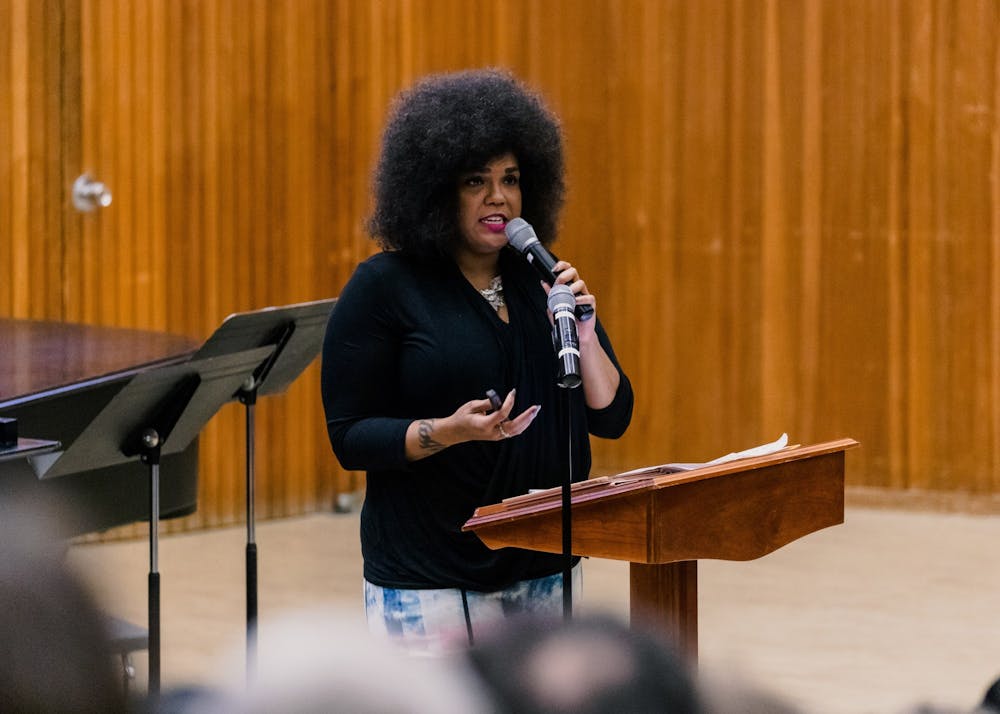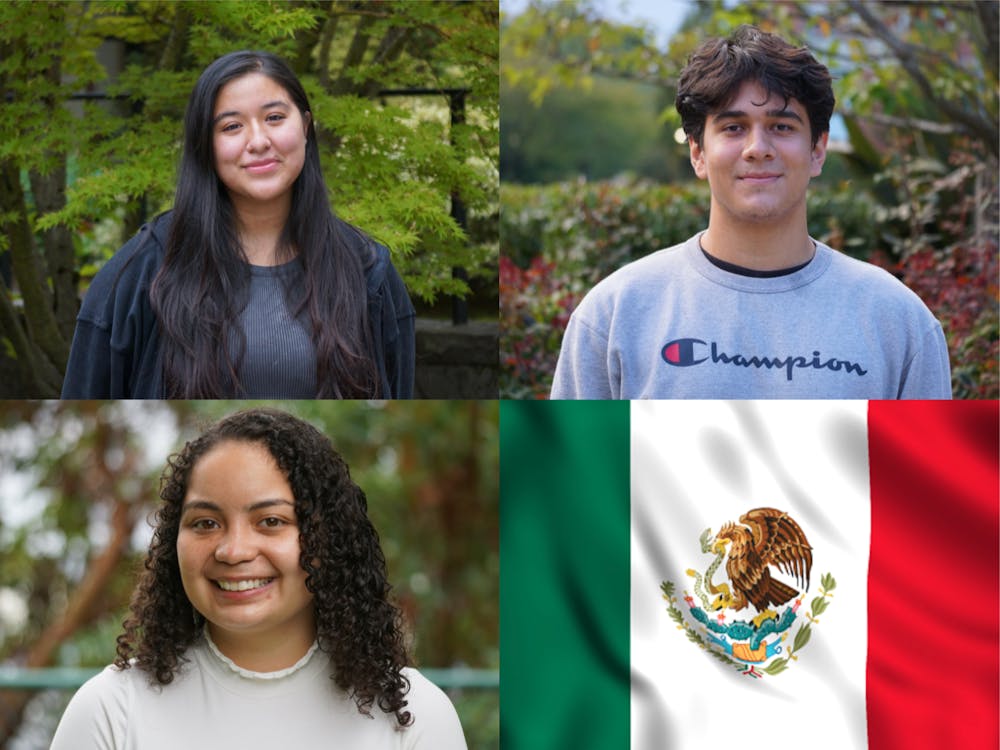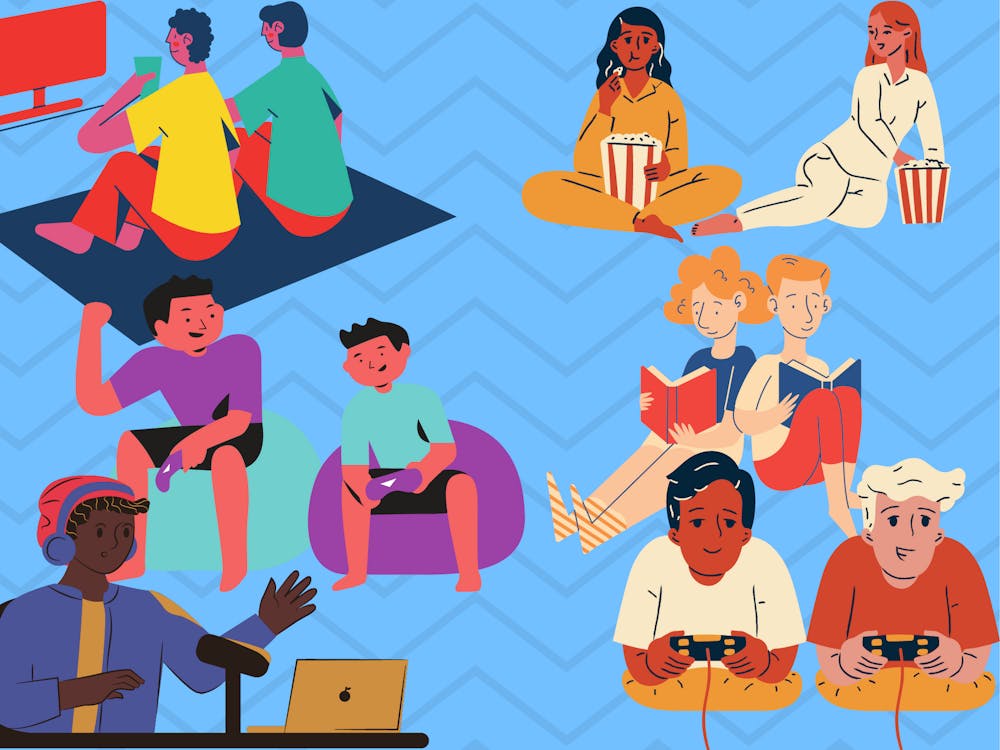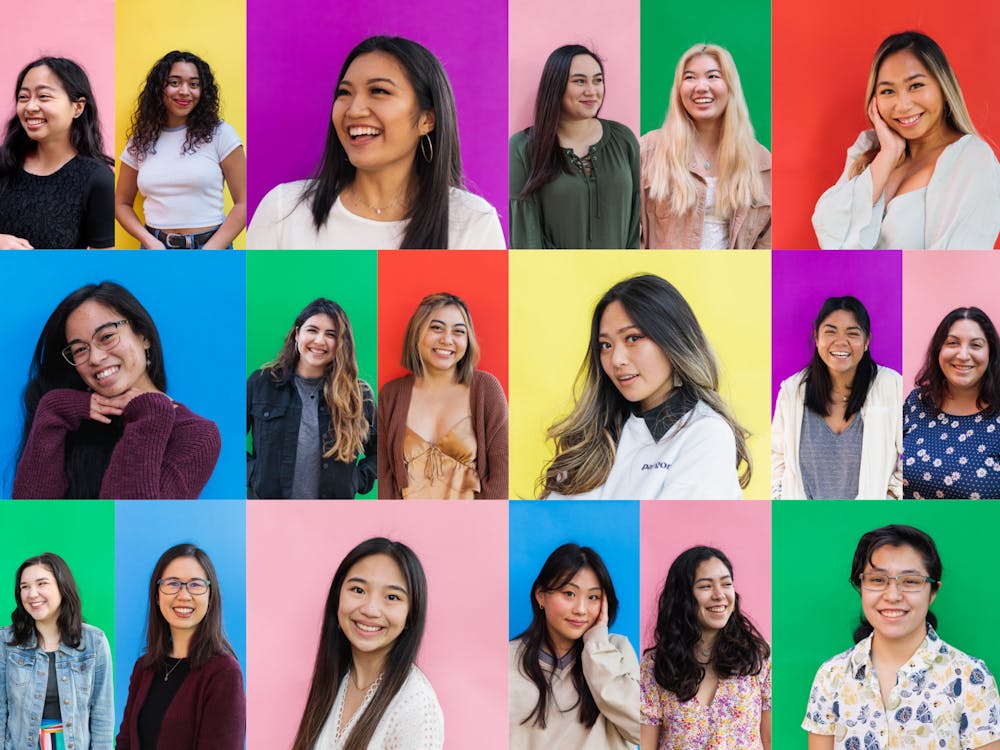On Monday, Jan. 20, University of Portland students, faculty, staff, as well as members of the greater Portland community, flooded into the Buckley Center Auditorium to hear the Martin Luther King Jr. Day keynote speaker, Walidah Imarisha and to listen to the music of UP alum Julianne Johnson ‘83.
It was the first time that the University of Portland formally observed Martin Luther King Jr. Day as a national holiday. Rather than it being a “day off,” UP promoted the day as a “day on,” calling on students, faculty and staff to engage, reflect and serve.
The program was opened by Johnson accompanied by the UP band and choir. The group opened with 2 songs: The Black national anthem, “Lift Every Voice and Sing,” and “Glory” from the film Selma. Johnson was joined by junior Sharif Morton for “Glory.” The program was closed by the group singing “We Shall Overcome” where the entire audience stood up and joined hands to sing along.
Video by Molly Lowney

Julianne Johnson leads the audience in "We Shall Overcome".
Imarisha is a local writer, activist and educator. The title of her speech was, “Why Aren’t There Black People in Oregon: A Hidden History.” and she discussed the history of race and power in Oregon.
“There is a right and wrong side of history,” Imarisha said. “You get to decide which side you are on. We will stand with white supremacist fascists, or we will stand with people who are fighting for freedom and justice. Those are the only two options. It's incredibly important to ask yourself, do I have the will to do not what is easy, but what is right?”
Imarisha believes that through understanding history, American people can begin to understand the current reality of race and eventually imagine themselves into a different future that can be built into existence. Below are some key points from Imarisha’s talk.
On the history of racism in Oregon
“Portland specifically, and Oregon in general, has been incredibly good at marketing itself in a multiplicity of ways as a progressive city, as a liberal city, as a city that cares about diversity and inclusion. How is it possible to be a city that proclaims itself to be the liberal capital of the United States, and be the whitest city in America?” Imarisha said. “The reality is, Portland and Oregon are exactly as they were intended to be: a racist white utopia. That is the foundation of Portland; that is the foundation of Oregon. It was a place where white folks could come and build the sort of idealized white society they had dreamed about.

Walidah Imarisha was the keynote speaker for UP's first ever MLK Day On. In her address she went through a timeline of racism in Portland and Oregon as a whole.
“A lot of Oregonians are very proud that Oregon came into the union as a free state. It is true that Oregon outlawed slavery, while it was still the territory, but I would never call Oregon a free state, or the Oregon territory and free territory. The same time Oregon outlawed slavery it outlawed black people as well.”
On exclusion laws
“If you are a Black and in the Oregon territory, you are a criminal. The first Black Exclusion Law in 1844 included the Lash Law, stating that Black people would be publicly whipped up to 39 lashes every six months until we left the territory.
“This resulted in Oregon being the only state in the Union admitted with original exclusionary clause in its constitution. Oregon's Constitution included a Black Exclusion Law that said Black people were not allowed to live in Oregon. We're not allowed to make contracts. We're not allowed to hold real estate. I think there are many important things about this. One of the really important things is this last sentence of his Black exclusion language was not taken out of Oregon's constitution until 2001.”

Julianne Johnson and Sharif Morton perform "Glory" for the audience.
On capitalism
“I think it's incredibly important to see the ways that Dr. King firmly rooted in a critique of imperialism of white supremacy and capitalism. That is a part that is very hard to sanitize and stick on a stamp, so it has just been erased. But I wanted to share this quote, where Dr. King said, ‘Again we have deluded ourselves into believing the myth that capitalism grew and prospered out of the protestant ethic of hard work and sacrifice. The fact is that capitalism was built on the exploitation and suffering of Black slaves and continues to thrive on the exploitation of the poor, both black and white,’ The foundation of this nation is in exploitation and the suffering of enslaved black folks, the genocide and theft of indigenous land, and the continued racialized exploitation of all working-class and poor people, and without understanding that foundation, we cannot begin to understand this world, this nation, or the state or the city.”
On systems and society
“The system is not broken. It is functioning exactly as it was intended; it’s actually functioning quite well, based on its intentions. Once we understand that, then we understand there can be no negotiation with the system, surface reforms are not enough. We actually have to dig deep to the roots; we have to restructure; we have to reimagine; we have to dismantle and we have to replace. That has to be our focus and we're going to get to true freedom.
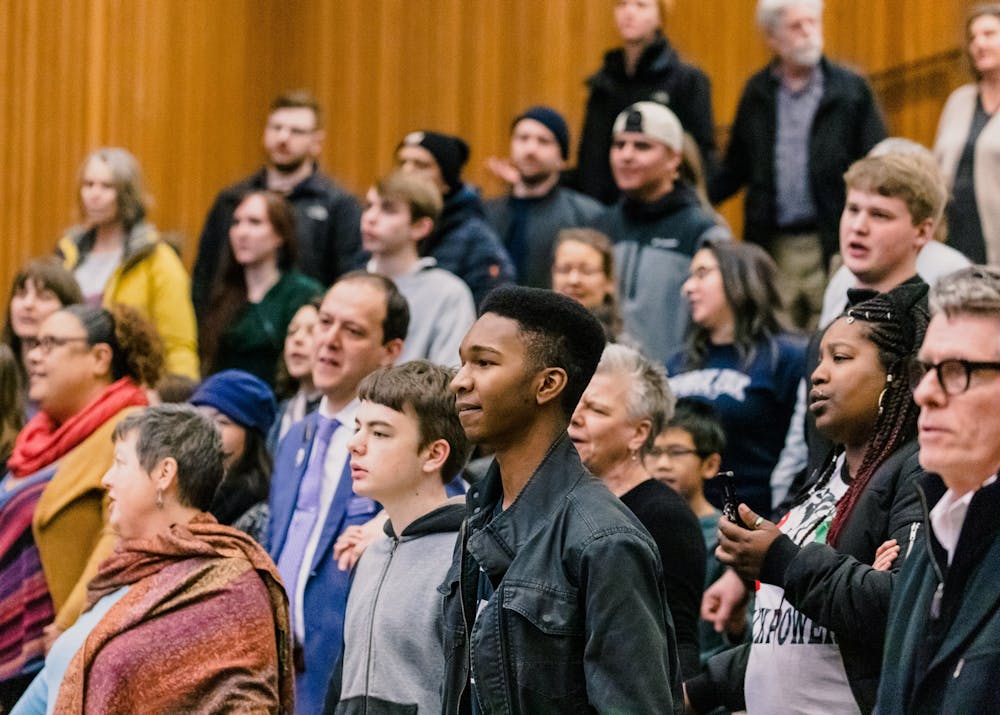
The audience sings "We Shall Overcome" to close out the day.
“People who are marginalized and oppressed are not victims of oppression. The second oppression starts, resistance starts, people begin building, challenging, imagining something different. Even when they're told it's a complete impossibility, people say they will imagine the impossible and build it into existence, and that's what true revolutionary social change is.”
Havi Stewart is a reporter for The Beacon. She can be reached at stewarth22@up.edu.



